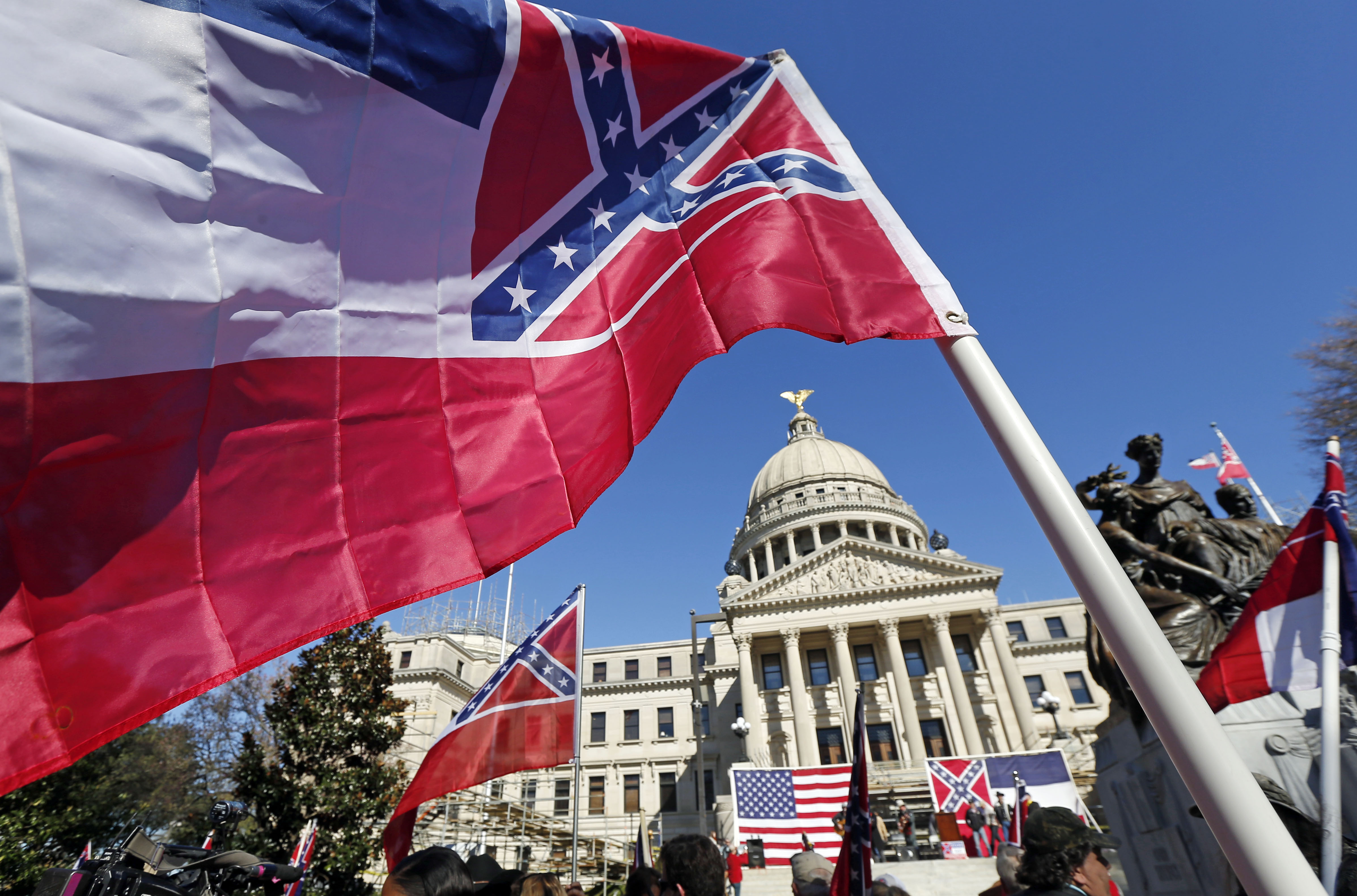Mississippi Governor Phil Bryant proclaimed April to be “Confederate Heritage Month” in an announcement that appeared on his official letterhead, but not on the state’s official website, being published instead on the website of the Sons of the Confederate Veterans, an organization whose main goal at the moment is to prevent the removal of the Confederate battle flag from the state’s flag canton.
Bryant chose April because it “is the month in which the Confederate States began and ended a four-year struggle.” It is “important for all Americans to reflect upon our nation’s past,” the governor wrote, before imploring all citizens to “earnestly strive to understand and appreciate our heritage and our opportunities which lie before us.”
The governor’s communications chief, Clay Chandler, noted that previous governors have issued similar proclamations. “Like his predecessors — both Republican and Democrat — who issued similar proclamations, Governor Bryant believes Mississippi’s history deserves study and reflection, no matter how unpleasant or complicated parts of it may be.”
The “unpleasant” and “complicated” parts of that history — slavery, and the war fought in defense of it — are not mentioned in the governor’s proclamation.

